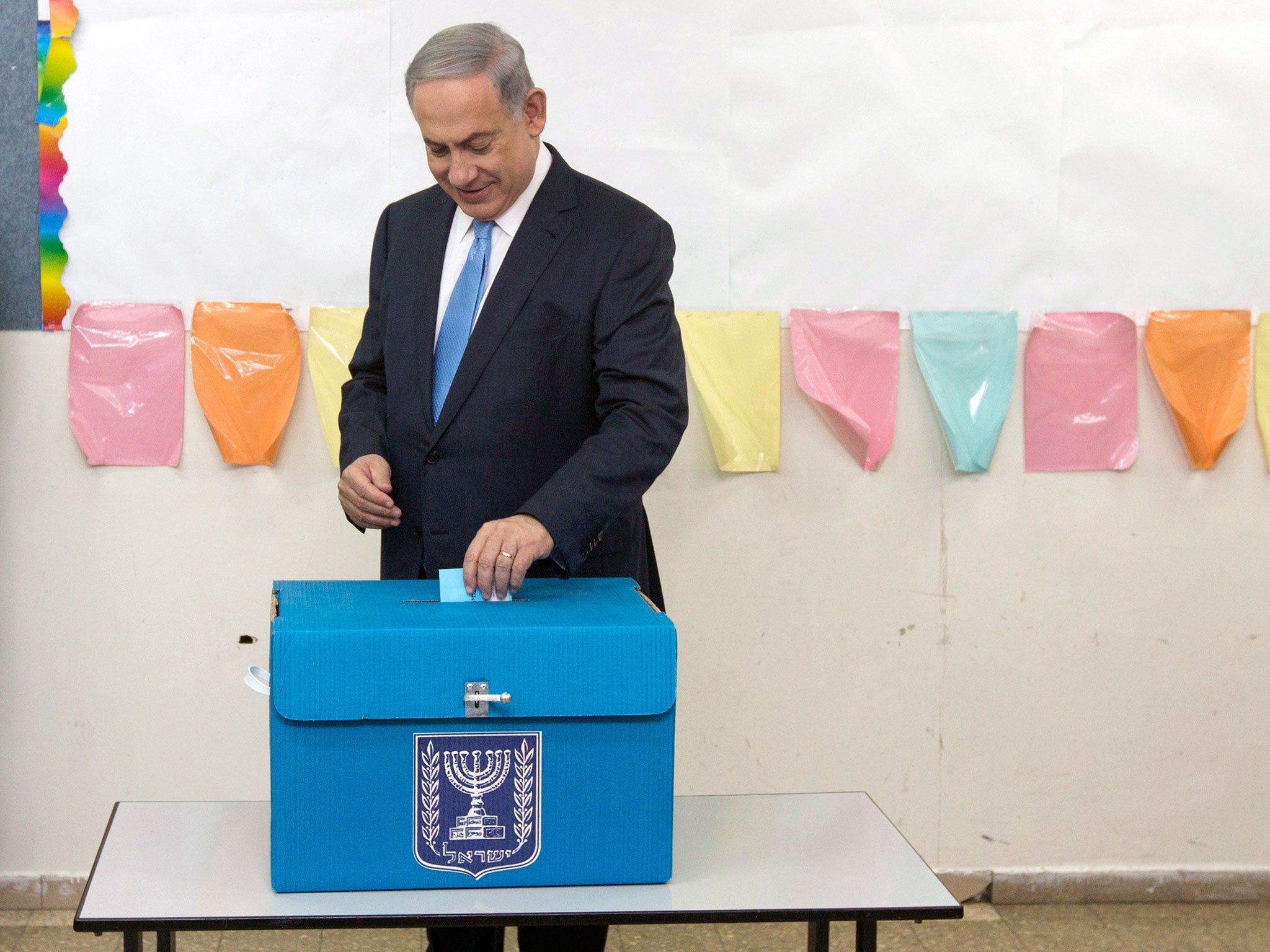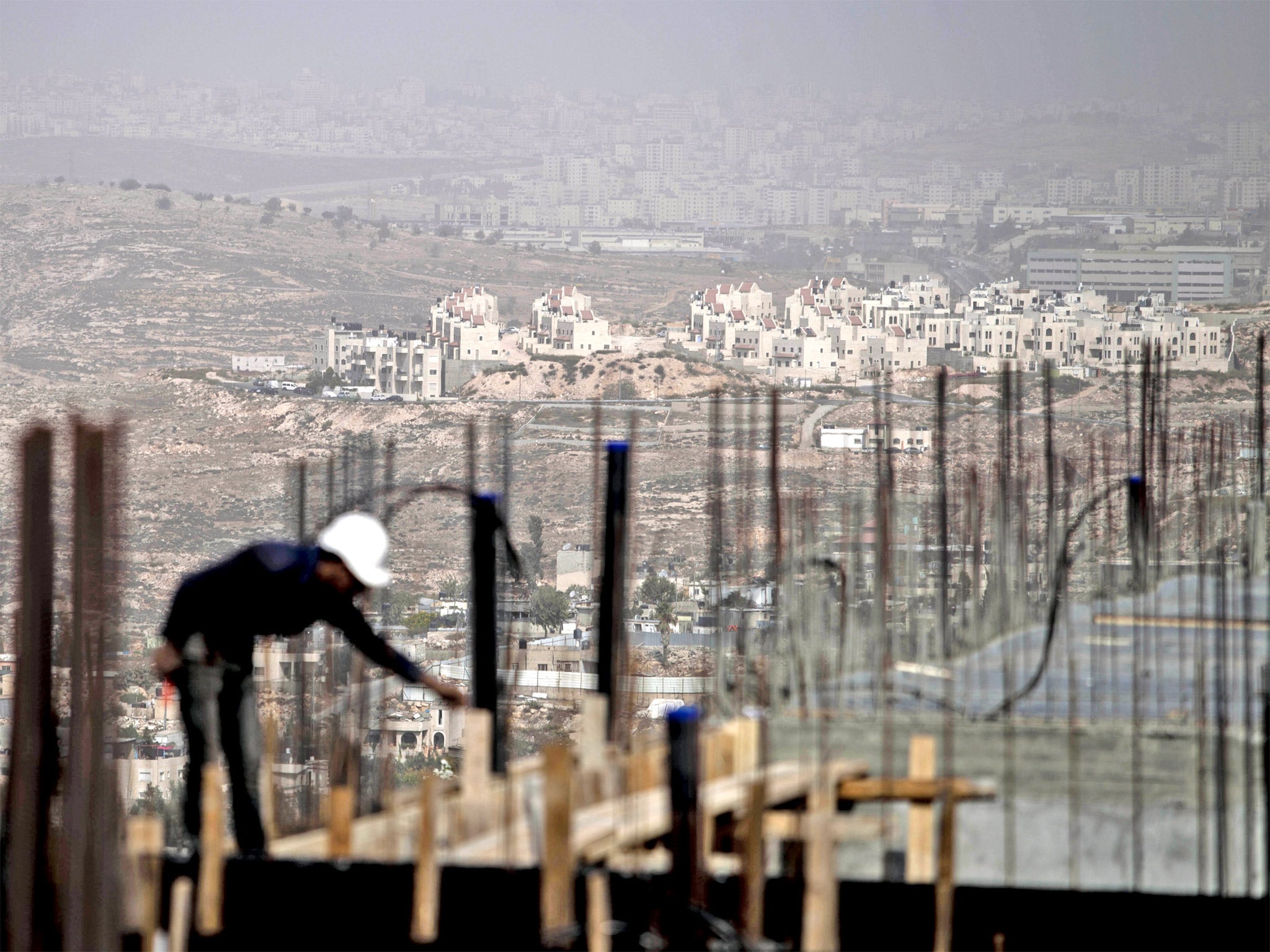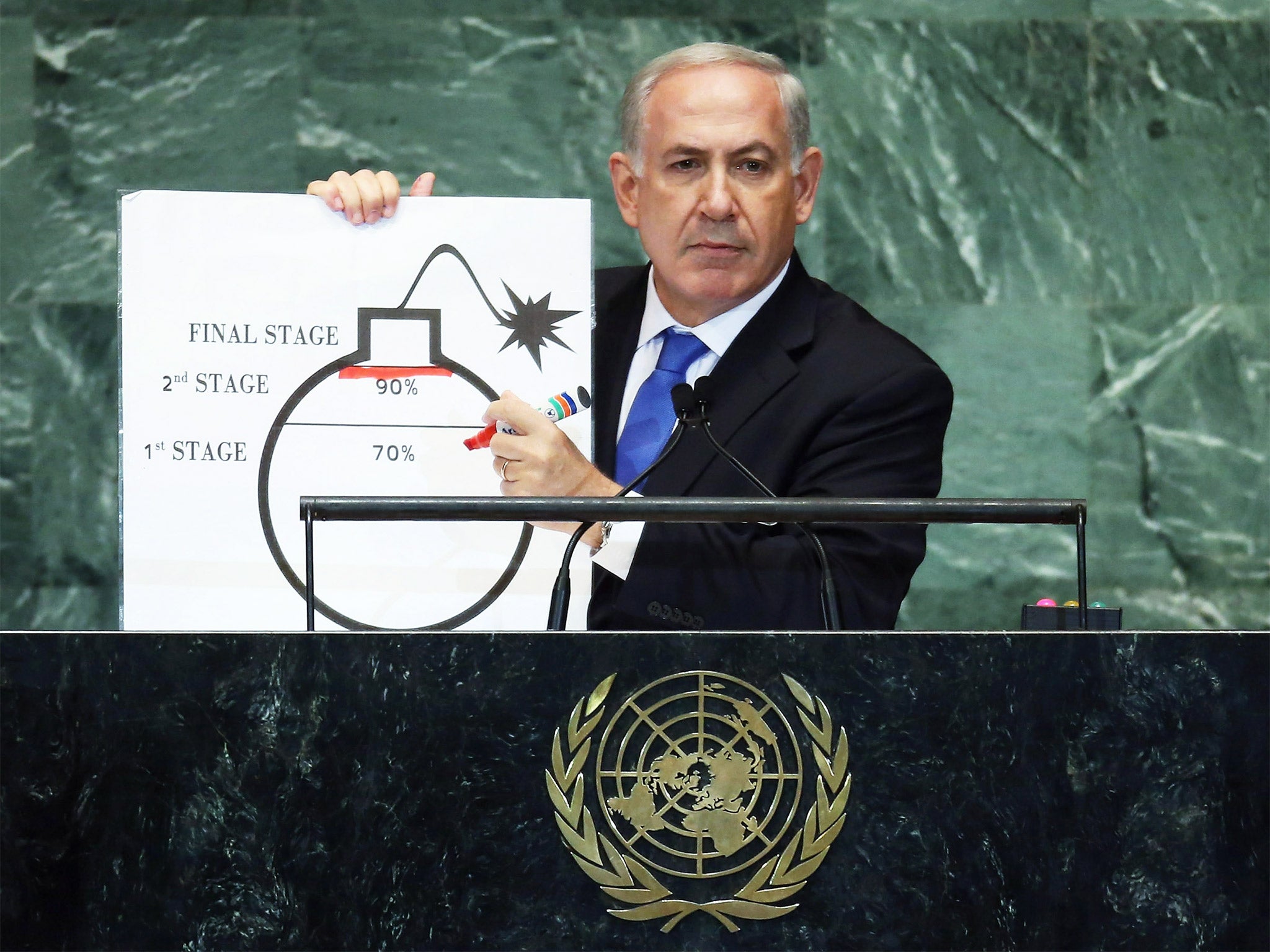Benjamin Netanyahu re-elected: Is Israel ready for more of this?
Israel was at the polls on Tuesday, with incumbent PM Netanyahu fighting to stay in power - and succeeding.

Your support helps us to tell the story
From reproductive rights to climate change to Big Tech, The Independent is on the ground when the story is developing. Whether it's investigating the financials of Elon Musk's pro-Trump PAC or producing our latest documentary, 'The A Word', which shines a light on the American women fighting for reproductive rights, we know how important it is to parse out the facts from the messaging.
At such a critical moment in US history, we need reporters on the ground. Your donation allows us to keep sending journalists to speak to both sides of the story.
The Independent is trusted by Americans across the entire political spectrum. And unlike many other quality news outlets, we choose not to lock Americans out of our reporting and analysis with paywalls. We believe quality journalism should be available to everyone, paid for by those who can afford it.
Your support makes all the difference.Benjamin Netanyahu, who has been Prime Minister since 2009, swept to a surprise victory on Tuesday.
Here are the things that have defined the rule of the man nicknamed Bibi. Fingers crossed Israel's prepared for more of the same.
Fractious US relations
Tricky US-Israeli relations came to a head earlier this month when the Israeli PM gave a speech to Congress and Barack Obama declined to attend. Netanyhau alluded to the difficult relationship between the countries in February 2015, saying: "When the issue at hand is our very existence, what is expected of a prime minister? Should he bow down and accept the danger for the sake of a relationship?”
The pair have never seen eye-to-eye over the Palestine question, with Obama having pledged in 2008 to work on the issue from "the minute I'm sworn into office" and Obama and Vice President Joe Biden both opposing Israel building settlements outside of the boundaries agreed by the 1967 borders.
Wife's phone rant
Sara Netanyahu was thrust into the centre of the election campaign after an alleged transcript of a phonecall from summer 2014 was released. In it, a woman alleged to be Netanyahu is said to have accused a political rival's wife of jealousy and allegedly ranting: "Where is your man? He doesn’t even reach the ankles of my husband" and "your man just babbles and babbles. He is jealous of him [Netanyahu] because he’s a million times smarter than him, because he’s a million times more successful, because he’s a giant of a leader!"
The alleged conversation between Monique Ben Melekh (Eli Moyal's wife) and Sara Netanyahu was written up by Israeli journalist Ben Caspit after he allegedly heard the tape. Netanyahu has spoken out about media smears against herself and her husband in the wake of the claims.

Illegal building in the West Bank
Which brings us neatly on to the controversy that has dogged Netanyahu's premiership concerning repeated failures to recognise the constraints of Israeli-Palestinian borders. UN Secretary General Ban Ki-moon described October 2014 plans to build new settlements as a "clear violation of international law".
Philip Hammond, the UK's foreign secretary, called a September 2014 land grab in the West Bank near Gvaot "particularly ill-judged". However, Netanyahu has stood fast on the building, saying at Davos in 2015: "I have no intention of evacuating any settlement or uprooting any Israelis." Other Israeli politicians have argued that it is recompense for the war with Gaza over the summer.
Former cabinet minister Ephraim Sneh argued that the settlements are an important political ploy, saying: "He poked the [Obama] Administration in the eye on settlements just to appease right-wingers."

Gaza conflict
The war, also referred to as "Operation Protective Edge" also garnered criticism for Netanyahu. The PM described the 50-day war in summer 2014 as "justified" and "proportional". The UN estimates that 2,100 Palestinians, 66 Israeli soldiers and seven Israeli civilians were killed in the conflict.
Left-leaning Israeli newspaper Haaretz argued that the war, in which Palestinian organisation Hamas failed to be eradicated, meant that Netanyahu had some good PR to do.
"It’s not only Gaza that has to be restored and reconstructed," the paper stated. "So does Netanyahu’s image, which was fashioned with such effort over a period of decades, portraying him as the leader capable of dealing with terrorism, the man who would subdue Hamas and bring it to its knees."
Housekeeper lawsuit
Benjamin and Sara Netanyahu's former housekeeper, Meni Naftali, is suing the couple for £110,000, claiming that Sara was offensive in her dealings with him. Naftali claims that she called him a "bad housekeeper" and chastisted him for having flowers that were a day old in their house. He also claimed that the PM's wife was pocketing money from recycling bottles. The Netanyahus deny all claims and Sara Netanyahu has called the allegations “totally baseless,” adding “Naftali is simply trying to discredit me.”
Cost of living
The 2011 social justice protests, in which people pitched tents in the streets of Tel Aviv, were just the start of problems. The high cost of housing and the perceived deterioration of the health system could well swing the election against Netanyahu, as 56 per cent of Israelis have said they will be voting on socioeconomic issues.
Earlier this month, the Central Bureau of Statistics found that more than 41 per cent of Israelis are constantly in their overdraft, with over 50 per cent of respondents blaming the high cost of housing.
Palestinian statehood
Despite previously promising "historic compromise" with Palestinians in 2013, Netanyahu pledged that he would not permit Palestine to become a state once more just before the polls opened.
"I think that anyone who goes about establishing a Palestinian state today and vacating territory is giving attack territory to extremist Islam to be used against the state of Israel," he said on Tuesday. "That is the real reality that has been created here in recent years. Whoever ignores this is putting his head in the sand."
This was criticised by some as a last-minute bid for right-wing votes. As Netanyahu's Likud party had four seats fewer than Zionist Union party, it's thought that the PM attempted to bring in voters from the Jewish Home party, which wants to annex land from the West Bank. The party lost four seats in this week's elections.